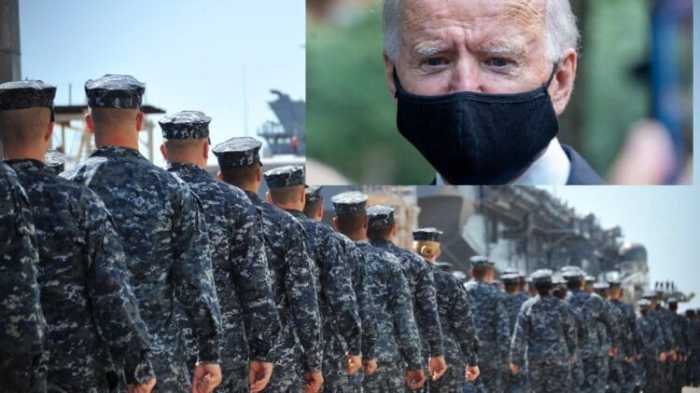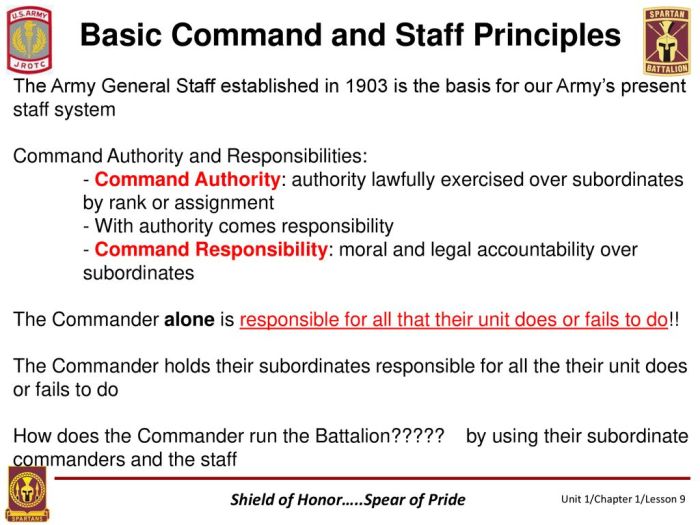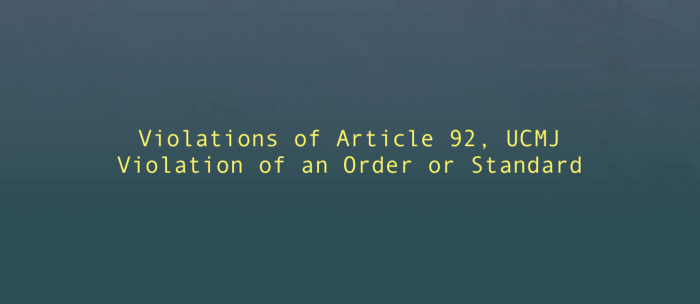A sailor who has had a UCMJ violation faces a complex and challenging situation. The Uniform Code of Military Justice (UCMJ) is a comprehensive legal framework that governs the conduct of members of the United States Armed Forces. Violations of the UCMJ can range from minor offenses to serious crimes, and the consequences can be severe.
This article will explore the impact of a UCMJ violation on a sailor’s career, the rehabilitation and reintegration process, and the legal and ethical considerations involved. We will also provide answers to frequently asked questions about UCMJ violations.
Background of a Sailor with a UCMJ Violation

The Uniform Code of Military Justice (UCMJ) is a comprehensive set of laws that governs the conduct of members of the United States Armed Forces. The UCMJ is designed to maintain good order and discipline within the military and to ensure that all members are treated fairly and justly.
UCMJ violations can range from minor offenses, such as being absent without leave (AWOL), to serious crimes, such as murder or rape. The consequences of a UCMJ violation can vary depending on the severity of the offense and the individual’s prior disciplinary record.
When a sailor is accused of a UCMJ violation, they are entitled to a fair and impartial investigation. The investigation will be conducted by a military officer who is not involved in the case. The investigating officer will interview witnesses, gather evidence, and prepare a report of their findings.
If the investigating officer believes that there is enough evidence to support the charges, the sailor will be referred to trial. The trial will be held before a military court-martial, which is composed of a panel of military officers or enlisted personnel.
Impact of a UCMJ Violation on a Sailor’s Career

A UCMJ violation can have a significant impact on a sailor’s career. A conviction can result in a loss of rank, pay, and benefits. A sailor may also be discharged from the Navy or face other administrative punishments.
In addition to the immediate consequences, a UCMJ violation can also affect a sailor’s ability to obtain security clearances or promotions. A sailor who has been convicted of a serious crime may be ineligible for certain jobs or assignments.
Despite the challenges, there are resources available to help sailors who have experienced a UCMJ violation. The Navy offers a variety of programs and services to help sailors rehabilitate and reintegrate into the fleet.
Rehabilitation and Reintegration after a UCMJ Violation

Rehabilitation and reintegration programs are essential for sailors who have experienced a UCMJ violation. These programs can help sailors to address the underlying causes of their misconduct and to develop the skills they need to be successful in the Navy.
There are a variety of rehabilitation programs available, including drug and alcohol treatment, anger management classes, and counseling. Sailors who participate in these programs can learn how to cope with stress, manage their emotions, and make better decisions.
Reintegrating into the Navy after a UCMJ violation can be challenging. Sailors may face stigma and discrimination from their peers and supervisors. However, there are resources available to help sailors overcome these challenges.
Legal and Ethical Considerations

There are a number of legal and ethical considerations related to UCMJ violations. Sailors who are accused of a UCMJ violation have the right to a fair and impartial trial. They are also entitled to be represented by an attorney.
Commanders and supervisors have a legal and ethical obligation to ensure that sailors are treated fairly and justly. They must also take steps to prevent and respond to UCMJ violations.
The UCMJ is a complex and ever-evolving body of law. It is important for sailors to be aware of their rights and responsibilities under the UCMJ.
FAQ Guide: A Sailor Who Has Had A Ucmj Violation
What are the most common types of UCMJ violations?
The most common types of UCMJ violations include absence without leave (AWOL), disobeying orders, and drug use.
What are the potential consequences of a UCMJ violation?
The consequences of a UCMJ violation can range from a reprimand to a dishonorable discharge, depending on the severity of the offense.
What is the rehabilitation process for sailors who have experienced a UCMJ violation?
The rehabilitation process for sailors who have experienced a UCMJ violation typically involves counseling, education, and job training.